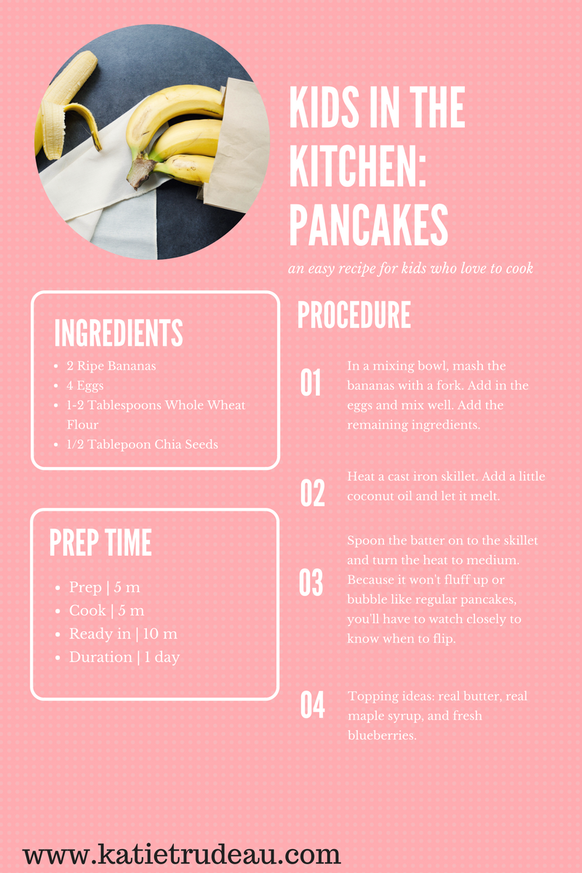|
Guest Post by Elkyra Park This global pandemic has forced schools and several other institutions to shutdown in an effort to protect individuals from getting the disease and stopping the virus from multiplying tenfold all at the same time. This is a bold move initiated by the authorities to curb the spread of the disease. But let’s face it, this is also a burden for working mothers. Hahaha. Sorry. I am not complaining about our family being stuck and safe at home. I am merely stating the reality that working from home while temporary homeschooling can cause disputes among family members. Imagine, your children are stuck in the four corners of your home. They can’t go out to play in the park or to the mall. They can get bored so they act out and throw tantrums just because. You, on the other hand, are busy with your work deadline so you are focused on finishing your task at hand. But little Jane is just so adamant in doing her take-home assignment. You got mad at her for bugging you and this resulted in a shouting match. You know that you could have prevented it but you are on a short fuse. What should you do? Let me share what my friends and I have done to manage temporary homeschooling during lockdown. EXPLAIN You need to open up about what is happening today. This way, your children will understand the current events and the urgent need to stay at home. Be honest as much as you can. FOCUS ON THE CORE SUBJECTS FIRST Set a realistic goal especially if you are new to teaching. Do not try to cover everything in the curriculum. Instead, start with core subjects such as English and Math first and stick to them. This way, you and your child don’t get stressed out too much. Once you have established a study routine, you can try adding other subjects. DON’T BE TOO HARD ON YOURSELF Remember that not everyone can ace the core subjects so don’t be too hard on yourself. You are both in a difficult and unpleasant situation so don’t be too critical. After all, this isn’t your line of work so take it slow. Just give yourself a pat on the back for trying hard. AVOID MAKING THREATS “You have to do this or you will be grounded.” Familiar? Unfortunately, those threats won’t work today because your kids are already grounded. Have you forgotten that they have already been stuck at home for days? Instead, explain to your kids the importance of the task so they understand why they have to do this in the first place. You can cite real life examples that may involve their hobbies or favorites to pique their interest. SET A DAILY ROUTINE Keep in mind that kids are creatures of habit so they thrive well with following a schedule. Try imitating their school routine and apply them to your home schedule. Just like in going to school, add breaks to give kids some rest. Base your work time on their schedule as well. RELAX What I do is wake up earlier than the kids so I still have “me” time (even if it means skipping sleeping in to prepare breakfast and do some of my work). Why do I call this my “me” time? The reason is I still have some quiet, uninterrupted time to do what needs to be done. Those kid-free moments honestly keeps me sane. By the time we start with our makeshift school, I have done about 60% of my tasks so I have less to worry about. This is my kind of relax. Other moms engage in arts and crafts or read books in their spare time. I suggest that you do anything that keeps your mind healthy and happy. Remember, you can’t pour from an empty cup so take care of yourself first. Eat healthy meals and don’t forget to squish exercises into your busy schedule. Bottomline I know that juggling parenting, working, and teaching is not a walk in the park. But we are moms (parents). We rock and we survive everything life throws at us. The best suggestion I can give is to NOT aim for perfection. Just try to survive this difficult time. It is already stressful for everyone to be confined to the four corners of the home so don’t add to this stress. When all else fails, you can always turn to internet for tons of fun activities that kids of all ages can enjoy. I hope that the tips will help you with your homeschooling difficulties. I know you got this, momma. Stay strong.
0 Comments
Reading opens doors... and hearts
If you know me in real life, you know that I am the biggest book lover. I've devoured entire novels in weekends (I'm looking at you, Harry Potter and the Deathly Hallows.) Even when I was in middle school, I would plow through series like Redwall in no time at all, getting completely lost in the fantasy world.
I also spent my academic career studying English literature and language. I currently teach AP English Literature online. It's 100% safe to say that I love books, reading, and all of the magic that reading can bring. So it goes without saying that I work hard to foster this love of reading in my own three children. As an English teacher, I know that books can be entertaining (i.e. commercial fiction) but they can also be tools that empower our child to do better, be better, live better. Specifically, books can help teach our kids how (and why!) to be kind. The world is in desperate need of more little children who grow up and spread love and kindness. (Somewhere along the lines of Mother Theresa's "Let no one leave you without being happier" quote.) Right? It's our job to raise up kind, loving little humans, and books can be a great asset. 9 books that teach kids how to be kind
Reading to your kids at bedtime
Reading a book at bedtime is one of the coziest times to read to your child. It's also one of the best times to choose a book with a powerful meaning like the importance of being kind. At bedtime, kids are often tucked into bed so they are quiet and receptive to the message. It also gives them time to think about the messages as they drift off to dream land.
What's your favorite book about kindness?
Do you already read at bedtime? Let us know your favorite books!
This site contains affiliate links to products. We may receive a commission for purchases made through these links at no additional cost to you. We only suggest products we love and use.
When I was little, there was nothing quite as exciting as hearing “Let’s go for a walk” after dinner.
Looking back, I’m sure my mom wanted to tire us out before bed, and I definitely use that trick, but a pre-bed walk is so good for your kids ... and you too! After an emotionally-rough winter, we spent the spring and summer increasing our time spent together as a family and much of the that is time spent outside. We've gotten to the point where when I say "walk", my one-year-old daughter runs to get Barry (our Maltipoo) hooked up to his leash. So it's safe to say that we all love this habit. Curious how an after-dinner walk can benefit you? Benefits of an after-dinner walk
Even if your little ones played outside during the day, there are still benefits to going on one more stroll after dinner.
Benefits of a late walk include:
Gear that makes your walk even better
So to be clear, you don't really need anything besides some good shoes for walking, but I've found these things make an after-dinner walk even better.
Stroller Once of the best parts about an after-dinner walk is that everyone in your family can participate. While your older kids can walk (or run), your toddler or baby may just sit back and relax in the stroller. Even if your baby isn't walking, he still benefits from the fresh air, the company, and the sights/sounds of nature. My one-year-old loves riding in the stroller; in fact, whenever we are in the garage, she points to her stroller as if to ask "Is it time yet for our walk?!" If you're in the market for a new stroller, check out the BOB Revolution Flex 2.0 Jogging Stroller. Apple Watch If you're still working on losing baby weight (ahem... me), grab yourself a smart watch and log your calories from your walk. I love my Apple watch, and you better believe, I open the "outdoor walk" each night to keep track of my progress.
Dog Gear
Our dog accompanies us on every walk, and because after-dinner walks can get dark (especially in the fall), it's a good idea to keep your dog safe with a reflective leash or harness. What about you?
Do you go for walks as a family?
This site contains affiliate links to products. We may receive a commission for purchases made through these links at no additional cost to you. We only suggest products we love and use.
Guest Post by Leslie Campos
Becoming new parents is stressful, and the demands of a baby can be overwhelming at times.
According to a study published in the Journal of Personality and Social Psychology, after the birth of a child, the negative aspects of the parents’ relationship can cause it to deteriorate very quickly. With all the focus on the little one, parents frequently don’t communicate very well, oftentimes argue more, and don’t have time for romance. Although many parents hesitate to leave their babies or young children behind, traveling together can be a wonderful way to recharge your relationship and reconnect as a couple. Prepare the Little One
Although throwing yourself full force into parenthood is a necessity with a newborn, after several months, it is time to consider getting away with your partner and focusing on yourselves. Begin by preparing well in advance. You want your baby to be completely comfortable and familiar with your sitter. A grandparent would be a great option, if at all possible. A week or so before departing on your getaway, leave the baby with a sitter for several hours — maybe even a full day — to help them get used to each other. Be sure to do some preparations yourself as well, especially if you’re a breastfeeding mother. You’ll need to pump to have milk on hand for the baby while you’re away. Don’t forget to bring along a pump that’s travel-friendly, a pumping bag filled with the essentials (storage bags, nursing pads, etc.), a spare pump, and a portable cooler to store milk while on the road or in the air.
Need a pump? Check out these supplies to make pumping-on-the-go even easier:
Leave Plenty of Instructions
Put together a notebook with all the information that you want the sitter to know — everything from emergency numbers to your baby's favorite soothing techniques. Odds are, the sitter will never have to even open your folder, but it will help put your mind at ease when you are away.
Stay Close to Home
You don't need to jet across the country to reconnect with your spouse. Staying within your state or even your own city will provide you with some “couple time” and allow you the ability to return home quickly if necessary. A staycation can also give you the opportunity to see your own area as a tourist and discover fun destinations and activities you haven’t experienced before.
Make It Short But Sweet
Communication is key to helping your relationship thrive. Even a couple of nights away will allow you an opportunity to have time to talk to each other and help you rekindle your romance. An overnight trip is a good start. However, you should try to make it a long weekend, or if you want to steer clear of the crowds, plan your vacation for a few days during the week.
Don't Spend a Bundle
The financial stress of a new baby is enough — don't add to it by busting your budget on your trip. Stay at a modest hotel, and do simple date night type activities. Going out just the two of you, like you are on a date, can give you time to talk and listen to each other. As Kindred Bravely explains, simple activities are often the best; walk at the park, go bowling, or take in a local sporting event.
Spending time outdoors together also is very healthy for your relationship. Hiking, biking, and canoeing are inexpensive ideas and fun ways to connect with your partner and with nature. According to Psychology Today, research indicates that couples who participate in joint physical activities feel more satisfied in their relationships. A quick trip can return you refreshed, invigorated, and ready to tackle everything life throws at you together as a couple. Taking time away, even just for a night or two, can help the two of to nurture your relationship with one another. The happier you are as a couple, the better parents you can be — and the more love your baby will feel. How do you connect with your spouse?
Share below some of your favorite ways to reconnect with your spouse!
Disclosure: Some of the links in this post are affiliate links, meaning, at no additional cost to you, I will earn a commission if you make a purchase.
Ah, Valentine's Day! The one day that couples look forward to so they can exchange lovey-dovey cards with one another as well as boxes of chocolates. And, this is the one day that singles do not like at all for obvious reasons. However, who says you have to be in a relationship to enjoy this special holiday? Because Valentine's Day can be quite fun for kids too! And this can also be quite fun for the family! That is right! You can celebrate Valentine's Day with your family because you and your kids will have so much fun.
Here are 5 fun Valentine's Day ideas that you will absolutely love: 1. Create Love Lists - This activity is an amazing one because kids can learn about the importance of gratitude. What you can do is have your kids write lists of the people who they love, as well as anything in general. For instance, if your child says he or she loves his or her cozy bed, then that should be added to the love list. Again, this way, kids can also learn about counting their blessings when they add the things that they love to the list. Because what can be done is after Valentine's Day is over, have them put the list away and then when it is Thanksgiving, tell them to take it out and then they can look it over and realize that they have so much to be grateful for! 2. Make Heart Cookies And Desserts - Of course, baking for Valentine's Day is going to make it on this list because that is one activity that families love to do. All you need to do is go to a dollar store to get heart-shaped cookie cutters and go to the grocery store to pick up some pink frosting, and red, white, and pink sprinkles, and other relevant candies! Then start having fun in the kitchen. You will love these Valentine's Day cookie and dessert recipes as well! Have fun with this. 3. Enjoy Movie Night With Popcorn That Is Pink - Pink is associated with Valentine's Day, so why not get some pink popcorn and enjoy watching a Disney movie with the kids while munching! You can add a few pieces of fair trade chocolate as well but keep that to a minimum. Otherwise, the kids will not go to bed that night due to being sugared up! 4. Get Creative And Play Some Valentine's Games - Kids love games, and it is always fun to play enjoyable ones with the whole family. Here are some game ideas that you can use for your family such as Valentine's Day bingo, the heart bean bag toss, and Valentine's Minute To Win from Makoodle. 5. Valentine's Day Themed Arts And Crafts - Right next to baking fun desserts, kids love arts and crafts and you can have fun with it as well! That means you and your kids can create Valentine's Day cards by using pink construction paper, glitter, and confetti, get plenty of red and pink markers, and heart-shaped beads. Some craft ideas you can find online as well such as having the opportunity to make your own heart crayons which are offered by MollyMoo Crafts. If your kids are going to preschool, then they will love the Toilet Roll Heart Stamps that are offered by Craftulate. With these fun 5 Valentine's Day family ideas, there is no shortage on amazing activities that will be enjoyable for the whole family. So, what plans do you have for Valentine's Day with your family? I’m not so far removed from reality to think that I am a perfect parent. I know that I am not, but I try my hardest to parent in a loving way that fosters a creative, safe, and warm environment. One of the most powerful tools to make or break a peaceful home is words. Oh, the power of words. I know that the words “don’t cry” can be emotionally damaging to children. Yet, one night, as my patience became totally depleted, I found myself uttering these words without much empathy. My preschooler was upset about something I deemed trivial. “Don’t cry” flew out of my mouth. “Big boys cry too!” He wisely spoke through his tears. Yes, my boy. Boys do cry, and they should. (Please note: I really do mean crying… not whining. Nobody wants a whiner in their house.) Once again, we can turn to science to shed light on an often-feminized topic; crying, as it turns out, is more than just a manipulative tool to get our way. The Health Benefits of CryingEmotional crying (as opposed to tears from the wind or from cutting onions) provides a healthy way for the body to process intense stress and/or emotions. Researchers have discovered that the chemical makeup of these tears are different from non-emotional tears. Emotional tears actually contain: ⦁ Stress hormones (one of which is cortisol) ⦁ Prolactin ⦁ Natural painkiller (leucine encephalin) ⦁ Manganese, which is a natural mood regulator This chemical makeup of real tears is exactly why you feel better after a good cry. As the stress hormone leaves the body, the mental attitude frequently improves, and the crier feels relieved. When we tell boys not to cry, we are cutting off a healthy way for them to process emotions. As the stress hormones build up without release, it sets the stage for rage, anger, and depression. Telling boys not to cry furthers the gender stereotypes Man up. Don’t cry like a girl. Don’t be a sissy. Only girls cry. Only babies cry. The research behind the chemical makeup of tears points out that emotional tears carry stress hormones out of the body – whether that body is male or female. That means that crying is not inherently a trait of femaleness; crying is within human nature. When we tell boys not to cry, it does two things: ⦁ It forces boys into a stereotype that forces a separation of all emotion from manhood. ⦁ It makes any girl who cries inferior. But crying isn’t just for girls. It’s for humans; it’s a safety valve to help us process emotions before we reach the critical point. Teach your sons to cry; teach them to process their emotions. Heck, just teach them about emotions. Teach your daughters empathy, to console a crying boy, to never mock a boy (or man) who cries. Crying Helps the Healing ProcessCertified relationship coach Chris Armstrong stresses the importance of crying as part of the healing process. According to Armstrong: “Crying is an outlet that has less casualties than isolation, anger or passive aggression. Crying is an instant release mechanism that allows the healing process to begin quicker. When men want to cry but don’t, they are simply trading in that outlet for something else. As a result, moving on from whatever wrought the emotion becomes that much harder.” Crying Helps Prevent Mental DisordersThis benefit of crying may seem a bit alarmist at first read; however, Harvard professor William Pollack presented his research at a conference on youth violence prevention hosed by the New York Academy of Sciences. Pollack presented his case that the anger and disconnect of young boys is at the heart of the increasing diagnoses of ADHD and depression.
The idea that boys should be “tough” and independent (too early) often causes an emotional clog, which can lead to depression, anger, and rage. The solution? Teach your boys how to handle emotions and how to cry. Boys don’t need to “toughen up.” They don’t need to stuff their emotions under a rug. To those fearful of perpetuating the tea cup generation: Experiencing emotions does not create the tea cup generation. Experiencing emotions is a part of what sets humans apart from the rest of the animal kingdom. When we embrace our emotions and learn to regulate them, life has a new sweetness to it. So the next time, your little boy cries, fight the urge to say “Don’t cry.” Shaping a happy childhoodGuest Post by Erica Johnson What can a parent do to foster a happy environment for kids? Make Time for Your Child Whether it's reading together, tossing a ball around, or mixing up some brownies in the kitchen, carving out quality time with your kiddo is essential to his or her emotional health. Giving your child some time where your focus is on only him or her can reaffirm that you'll be present when times get tough. According to LiveScience.com, you should try to eliminate distractions during this time. If you're on your phone during your special time together, you could end up sending the message that you're prioritizing the phone instead of him or her. Don't Worry; Be Happy! In Christine Carter, PhD's book Raising Happiness, she explains: "Extensive research has established a substantial link between mothers who feel depressed and 'negative outcomes' in their children, such as acting out and other behavioral problems." If you're feeling stressed or down, take a much-needed time out! A date with your spouse or a night out with friends can recharge your mental batteries and help you be a better parent. Going out not your thing?
When you're feeling stressed throughout the day, try jamming out with your babe to your favorite tunes or take a stroll with your little one while chatting about what you see. You can find a helpful guide to choosing the best stroller here. *Note: If you feel blue for prolonged periods of time, speak with your doctor about managing your symptoms. Help Your Child Balance Work and Play Structured and unstructured activities are both key components of your child's development. If you and your child are constantly running back and forth between dance classes, piano lessons, math tutoring, playdates, and educational field trips, you might need to leave a blank space in your planner. Self-directed play allows your child to exercise control over his or her own life and to feel freer and happier overall. Encourage your child to have free time outdoors whenever possible; according to an article from CBC.ca, "Kids are often more interested in natural spaces than pre-fabricated play structures." However, if your child shows interest in playing a team sport or joining a club, these structured activities can increase your child's confidence. Regularly Eat Meals With Your Child In a study from August 2004, researchers found that "frequency of family meals was inversely associated with depressive symptoms and suicide involvement". Sharing meal time provides an opportunity to teach your child, to share feelings and experiences, and for you and your child to practice good manners and eating habits together. Not only does sitting down to eat together increase family connectedness, it can also improve your child's health with reduced rates of obesity, eating disorders, and drug abuse. Being healthy makes it easier to be happy. How do you help your children be happier?What are your tips for raising happy children? Comment below! About EricaErica Johnson is the main editor for Inner Parents and is a very proud mother of two. She is passionate about the latest parenting tips & baby products. You can follow her on Twitter or Pinterest.
Do you know a new mom - or an expectant mom? You might have gotten her something for her baby shower, but new moms have a whole set of needs once that little bundle makes his/her grand debut. What do new moms REALLY need?
Are YOU a new mom?What did you want/need as a new mom? Comment below!
P.S. If you're expecting and looking for some baby essentials, be sure to check out my kit for crunchy moms. It's a one-stop-shop for new mamas... toxin free of course! I've started this post at least 23423 times. That's an accurate count too. What can I say about fatherhood that hasn't already been said? It's no shocker to learn that our society struggles with fatherhood and masculinity. Think of this: when a woman is with her children, she is mothering them. When a father is with his kids, he is "babysitting." How often have you heard that? We are quick to label fathers as dead beats or softies or hands-off. So in an effort to show some of the Daddies some love for father's day, I thought I'd share some fun facts about fatherhood. Fun facts about fatherhood
How to show fathers some lovin'I've written many, many times about the book The Five Love Languages... and this is another prime example of when to use it. Because let's face it.. not all dads like power tools and neck ties. And someone so important deserves a gift that shows a little love and attention.
If Dad's love language is acts of services, then doing (rather than giving) will fill up his love tank.
5 Tips for Using Cooking as a Way to Bond with Your Kids (Plus, An Energizing Pancake Recipe)3/29/2017 It's tempting to try to rush through meal prep in order to get food on the table. I get it. I know dinner (or lunch or breakfast) can be stressful. (Read this post for reducing meal time stress.) We all know that eating together is important but actually cooking together can be an opportunity for bonding too! If you can slow down (just a little bit) and invite your kids into the kitchen, you not only get a chance to chat, but you have a valuable teaching opportunity to impart your culinary and nutrition wisdom on your kids. The key is to start simple. Use a simple recipe and hand over the reigns. The recipe above is easy and even my littles can do almost the entire recipe without help. Tips for using cooking as a bonding tool
Easy banana pancakes recipe What you need:
Do your kids help out in the kitchen? How do you use food and cooking as a bonding tool? What are your favorite recipes to cook with your kids? Comment below! This site contains affiliate links to products. We may receive a commission for purchases made through these links at no additional cost to you. We only suggest products we love and use. |
About KatieWife & Mama with a passion for peaceful parenting, natural living, homeschooling... and my daily café au lait. Archives
July 2020
Categories
All
|
















